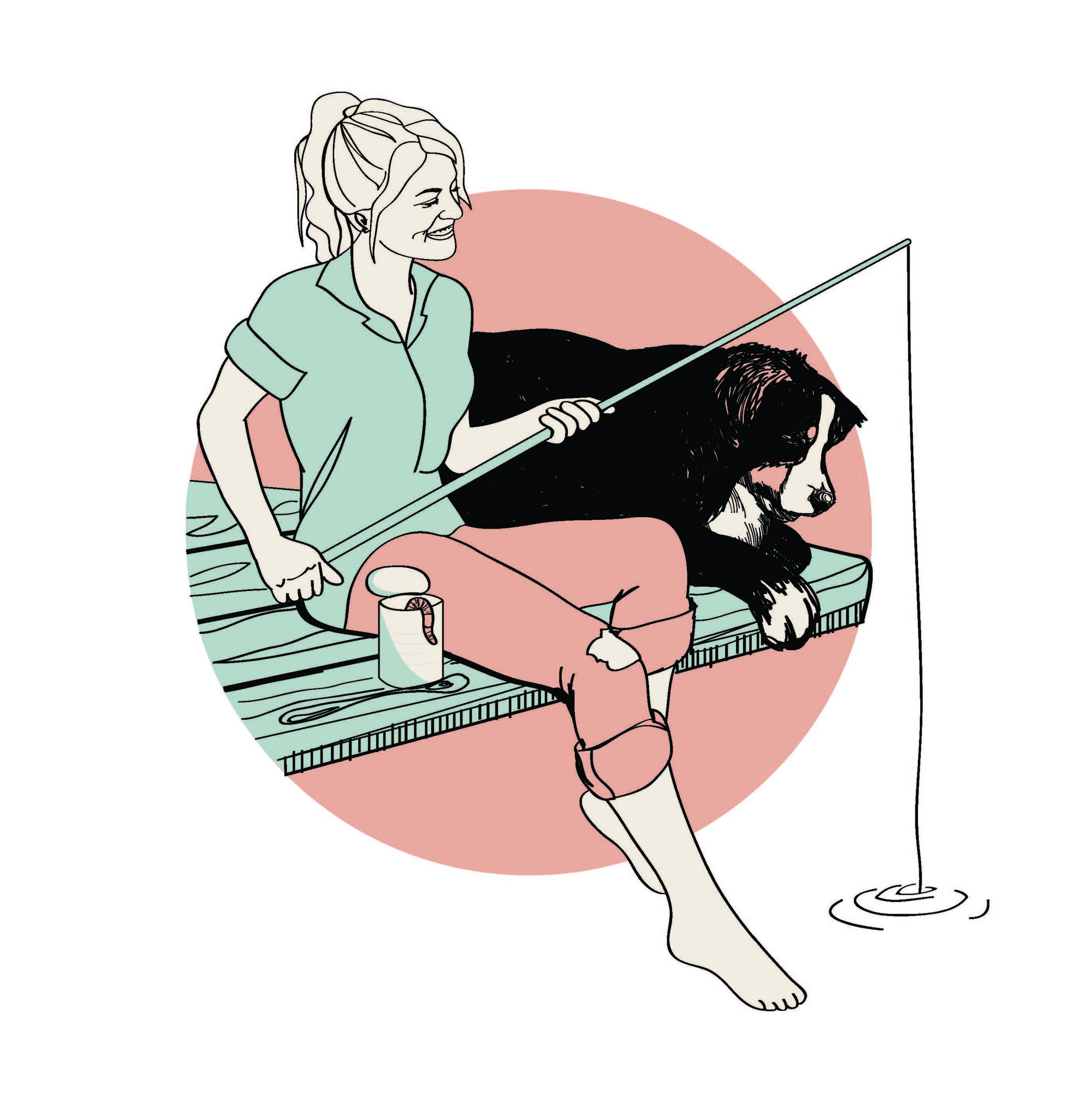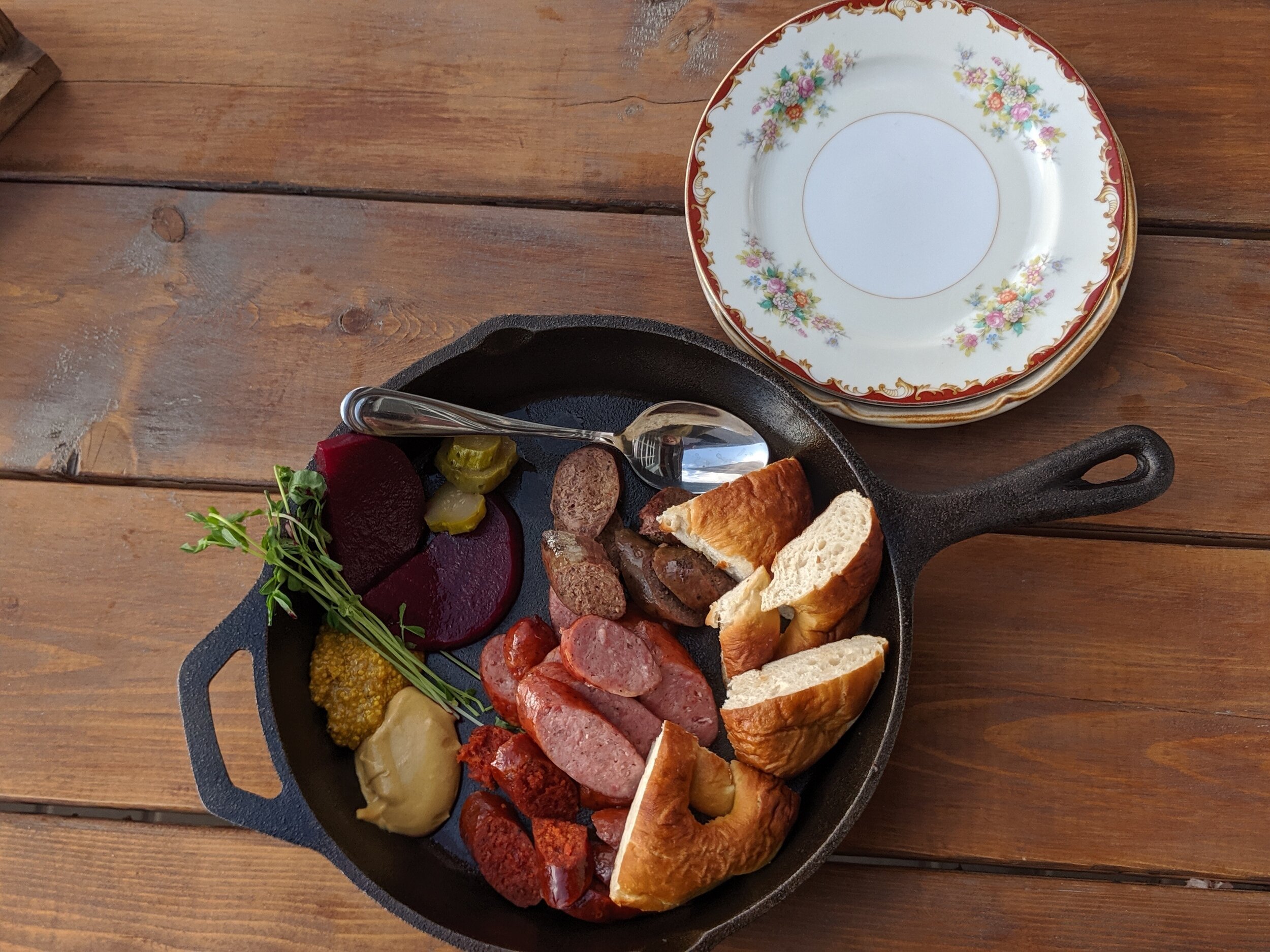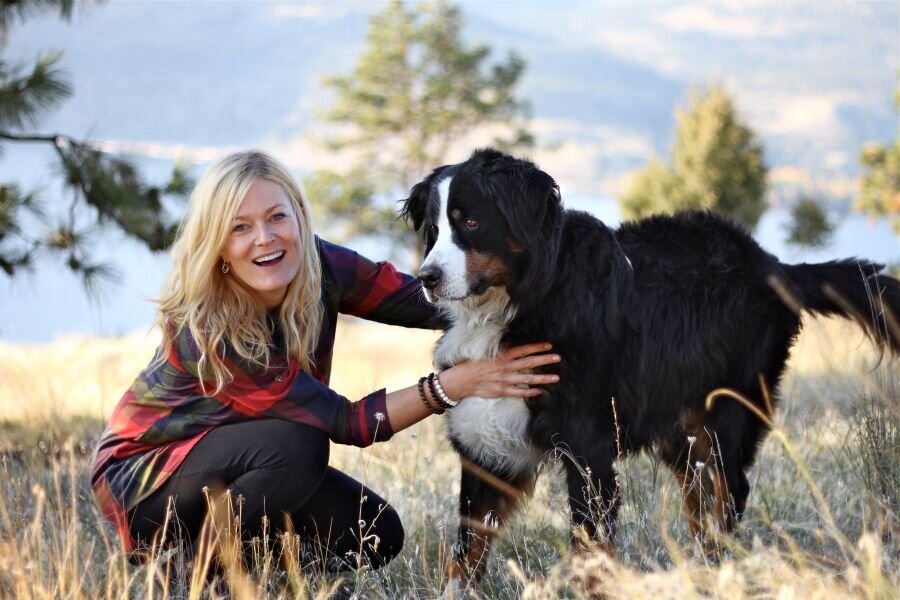Building a community one brew at a time
Illustration by Lisa Ranney
It’s not very often that a business is validated by a stranger who has no input or buy-in to your plan, but for Susi Foerg, an ah-ha moment helped coalesce everything she envisioned for her dream.
Four years ago, Foerg was on a weekend trip to the Sunshine coast when she stopped by Persephone Brewing Company for a pint. Persephone Brewing Company is well known by craft beer lovers for their well-developed brews, but what struck Foerg was the balance between beer and community. You see, the microbrewery does far more than just brew beer—it’s also a self-sustaining 11-acre farm with a focus on community agriculture. Foerg was inspired—so inspired in fact, she started to ruminate on how she could replicate the good work being down in Gibsons right here in Kelowna.
With a background in finance and banking, Foerg had a deep understanding and respect for the requirements of developing a sound business model. But she also knew that one of the intrinsic values of a business owner is understanding customer needs.
“I had always enjoyed working with clients, listening to their challenges and helping them find solutions to their banking needs,” she says. Applying that customer service-driven approach, Foerg developed a business plan for a farmhouse brewery in Kelowna that would focus on community, environment and employees as business priorities.
However, as in life, business plans sometimes must change. The Provincial Agricultural Land Commission, also known as the Agricultural Land Reserve or ALR, exists in British Columbia to assure the preservation of agricultural land. Requirements for building a farmhouse brewery in Kelowna on existing agricultural land meant very stringent regulations would need to be met, including the production of 50 per cent of the grain that was needed for the brewery would have to be grown on the land.
“That meant I’d need to grow about 20 acres of grain,” says Foerg ruefully, which was not a financial option. So, as entrepreneurs need to be nimble, she started thinking about ways to fine-tune the values of Persephone Brewing—which were non-negotiable for her own vision—and develop a brewery that incorporated those ideals.
“I tweaked my business plan and decided I need to do some research to make sure I had developed the plan appropriately,” says Foerg. In order to take the leap, she decided to rent out a suite in her house and go to Vancouver for several months and work at a brewery there to develop a deeper knowledge and skill set. But how to find a reliable tenant? (and here’s the ah-ha moment …)
“I decided to post my suite on my private social networks rather than publicly,” says Foerg. Meanwhile, a local woman who had recently escaped an abusive relationship was about to lose her short-term emergency housing and faced homelessness. Through a series of conversations, Foerg was able to provide safe housing and assure herself that her home would be cared for while she perused her dream, while providing the woman a safe and anonymous place to rebuild her life. Foerg’s decision to change her career and build a business that would focus on community, impacted a stranger in a deeply meaningful way.
“That’s when I knew I was on the right path,” says Foerg.
Taking what she learned from her time researching community-based social enterprise, as well as her time at Electric Bicycle Brewing in Vancouver, Foerg returned to Kelowna ready to hit the ground running.
Four years later, Rustic Reel Brewing is open for business, featuring local products and leading the charge on building relationships with supporting the local community, the environment and employees.
“As a business owner with 23 employees, it’s my responsibility to learn from experiences and provide a job that works around people's lives—the brewery is my life, not my employees’,” she explains.
“I want any employee to understand that I know that this professional relationship has to work so that people are happy,” she continues. With that in mind, Foerg has actively implemented supports for employees including extended health care benefits from the local Chamber of Commerce, as well as a dedicated time to embrace a work-life balance as a team, including group hikes and get-togethers.
“It’s important to me that we integrate staff reflection into our work, and I make sure I include self-reflection as part of my professional development,” says Foerg. “I need to be present and aware, and assure that all employees, no matter their role, feel validated and—even when time pressures mean I have to prioritize something else ahead of their needs—that they’re not unimportant to me.
“It’s easy to feel like you’ve failed every day but being a business owner means everything is a learning process with constant development and evaluation.”
With the brewery humming and the employees well cared for, it’s time to look at the community aspect of the brewery – and what a community it is. “The number-one priority for me in my personal life is animal welfare and cruelty,” says Foerg. “I never use products at home that were tested on animals, so why would I allow them to be used in my business?” The answer is a resounding no, which means nothing in the building is tested on animals. Ever.
The airy building seats 100 inside and 60 on the dog-friendly patio. The design of the brewery is not nautical, but meant to showcase the owner’s love of fishing, as well as the organic interplay of a rustic club house. The tables, the flight boxes and the wall paneling are all re-purposed by pallets and constructed by Foerg. “I sanded and planked all those,” she laughs. The design and the building is communal and family friendly, as well as welcoming to the canine members of the family. In fact, sadly, Walter, the Bernese Mountain dog featured on the design for the brewery created by local designer Lisa Ranney, passed away at the age of 11 shortly before the brewery opened, although his memory and influence lives on.
Susi and Walter, her loyal companion and the best brewery dog.
“I love to fish and this place was meant to be female friendly, so I wanted to incorporate design and colours that embody those ideas,” says Foerg. The brewery also features the Tackle Box, a market space that developed because, “we wanted to have a place where local market items could be showcased,” says Foerg.
“We feature a variety of different local products, including Taste of the Okanagan, which is a mother-daughter team whose products we use on our menu.” Other local menu items include pates, meats and cheeses from supplies across the Okanagan and lower mainland, as well as local grains. During the brewery production cycle, once the grains are spent, the environmental aspect of Foerg’s business plan comes into play. “We have two local farmers who pick up our spent grains for animal feed, but we produce breads, muffins, pretzels and other baked goods in house, including vegan and gluten-free options.
“We continue to grow and continue to focus on local suppliers,” says Foerg. “What we have on our menu and what we want to explain about the origins and sources of our product is important.”
At the end of the day, bring community together has been and is a priority for Foerg. “When you can see the impact of your work, that’s when you know you’re doing the right thing.”
About Cait Wills
Born in Vernon and raised around the world, Cait Wills is a passionate advocate for the Thompson Okanagan region. As Storyteller Specialist for the Thompson Okanagan Tourism Association, Cait is eager to showcase people, places and things in the region. If you have a suggestion on something you would like to know more about, please drop her a line at media@totabc.com.




